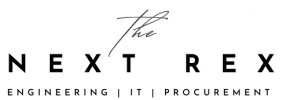EU Piracy
This is a huge EU area, according to a communication: “IPR-related industries account for about 42 percent of the EU’s GDP (worth around € 5.7 trillion a year), 38 percent of all jobs and not less than 90 Percent of EU exports. “ Above all, the EU wants to catch the “big fish” and this concerns product counterfeiting and piracy content. Because that does not only harm the economy, but in the case of counterfeiting can endanger the health, such as when it comes to medicine and toys.
Also Read: BMW Invests 200 Million Euros In Battery Research
The proposals are, as TorrentFreak explains, sometimes not new: you want to turn off the commercial tap for copyright infringement by looking carefully where the money comes from, which finances these services. This means that you want to target fewer individual users than the masterminds. However, this is not to be achieved through new legislation, but rather to support voluntary agreements between copyright owners and third-party services. This mainly affects advertising providers and payment service providers.
Also Read: Ireland Wants Apple To Pay 13 Billion Euros In Taxes
What is new, however, is that we want to explore how to use “blockchain technology to combat intellectual property rights violations in supply chains”. How exactly this should be done, the EU does not explain. But what is meant here is an approach whereby independent artists should receive royalties and other payments without the need for intermediaries.
Also Read: EU Finally Abolished Unjustified Geoblocking
Finally, the latest EU guide also includes information on when and how web pages can and should be blocked. Also addressed are filters, but here the EU Commission is rather reluctant since he does not want to compel third-party services to “broad, nonspecific and expensive filter systems”.

